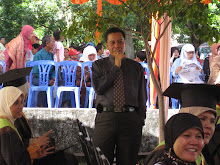by Alan Haskvitz
It’s no surprise children learn at different rates, and, according to some published research, only when they are ready. Other research stresses intrinsic rewards, differentiated curriculum, and motivation by personalizing lessons. However, the bottom line for many educators is that some children are slow to learn, but don’t have a learning deficiency.
Perhaps the greatest challenge to an educator is a child who is a slow learner. These children do not fall into the category of special education, do well outside the classroom, and show no evidence of having a medical problem. They simply do not do well in school or a particular subject.
In the days before formal schooling, these students would carry on productive lives working at tasks that did not require extensive reading, writing or math. However, today the emphasis is less on occupational learning and more on academic preparation. Thus, there is a growing need for help to remediate these children and provide them the best possible opportunities in a changing world.
Having successfully taught for nearly 30 years in several states and countries, I’ve seen two commonalities emerge with slow learners. First, they need extra time to complete tasks. This means parents must be willing to augment what happens at school regardless of how fruitless it might appear. Secondly, the child must be offered appropriate incentives. Depending on the child, the best incentives are family projects or activities, such as building a model or attending a concert or game. The incentives should require delayed gratification, so the child learns patience.
The next area is proper nutrition. Children need breakfast. Period. Every study done points out a quality breakfast and proper sleep are the two best ways to improve student performance.
Finally, a teacher or parent must seek lessons and other resources that make it easier to differentiate the curriculum and make learning more vital and relevant. To this end, special education sites on the Internet have some great ideas. Although slow learners do not qualify for special education classes, the concepts teachers use with special education students are ideal for helping a slow learner once the student’s weaknesses have been diagnosed. In any one of my classes, about 10 percent are slow learners, so having a slow learning child is not unusual.
One of the best places to start looking for help is at Reach Every Child, Special Education, where you can find a wide range of helpful sites. Also at Get Help Teaching Special Needs Students.
skip to main |
skip to sidebar

Pages
Mengenai Saya

- window of the Worlds
- Pekanbaru, Indonesia
- I am Aswir Astaman, I am a teachers trainer at The Institution of Educational Quality assurance for Riau Province. Educational Background - Diploma III English Department of Faculty of Language and Art IKIP Padang - S1 (Graduate degree)of English Department of Educational Faculty of Riau University - S2 (Post Graduate) State Padang University
Followers
Labels
- Article (5)
- Education (3)
- Lyric of the Song (1)
- People write (1)
- Short Story (3)
- Students Write (5)
- Teaching Materials (2)
- The great people (5)
- Traveling (1)
Blog Archive
Copyright 2010 Window of the Worlds. Powered by Blogger
Blogger Templates created by Deluxe Templates
Wordpress by ezwpthemes


0 komentar:
Posting Komentar